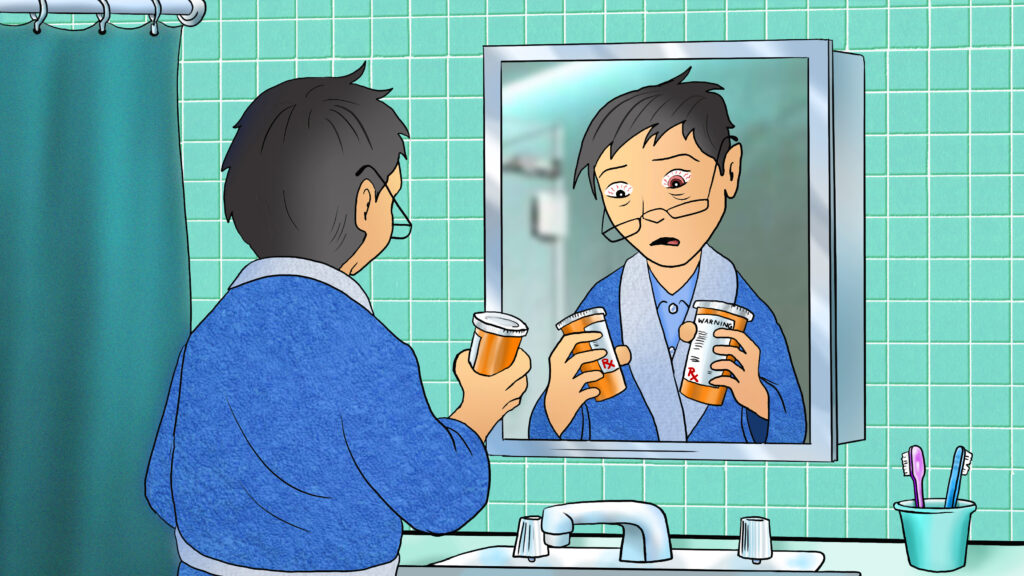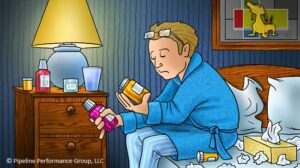When sleep seems like an elusive dream, you’ve checked all of the other boxes to see that your sleep hygiene is good and there are no complicating sleep disorders interfering, you may need to look in your medicine cabinet to determine whether the side effects of medication are causing you to miss out on getting enough sleep. It’s no surprise that prescription drugs have side effects. Having a discussion with your doctor about possible side effects of any drug you take can help you understand the broader scope of how that medication affects your body. The caveat is that drugs interact uniquely with individuals according to each person’s chemical composition, physical condition and other drugs being taken.
Since we’re primarily concerned with getting a good night’s sleep to balance out a full day’s work, let’s look at the drug category of sleep aids. Insomnia is a common problem in America and consequently, there are many varieties of sleep aids on the market. Your doctor is the person who can help you decide if taking such medication is best for you and if so, which one.
Sleep aids may be useful in the short term, but are known as potentially addictive in the long term. The main side effect noticed by the majority of people taking sleep aids is grogginess that persists into the waking hours. Other side effects include dizziness, headache, heartburn, and tremors. On occasion, users also report a loss of attention and memory.
Some sleep aids can work quickly to increase sleepiness. There are anti-anxiety medications that increase drowsiness and help people sleep. There are drugs that affect the hormone melatonin in the brain and are not considered addictive. Barbiturates are a class of drug that depress the central nervous system and are used as sedatives, sleeping pills, or anesthesia. They can be fatal in overdose.
Before you schedule a time to meet with your doctor about sleep aids and their potential side effects, evaluate commonly used drugs that can have a negative effect on your ability to fall asleep and stay asleep. These may include:
- Nicotine
- Alcohol
- Caffeine
- Steroids
- Inhaled respiratory medication
- Attention deficit hyperactivity disorder (ADHD) medication
Each of these drugs is shown to negatively affect one’s ability to get a good night’s sleep. Examine your current practices and see where adjustments might be made to elevate sleep to priority level.
A consistent quantity and quality of sleep, combined with exercise and good nutrition may eventually eliminate your need for any medication. Eliminating unnecessary medication removes negative side effects from your daily experience. Practicing good health habits and sleep hygiene is a great way to start a cycle of well-being.
What one, small step will you take today to begin?
MANAGING FATIGUE EDUCATIONAL PROGRAM | Scarlet Knight © 2022 Please Distribute to Others.




